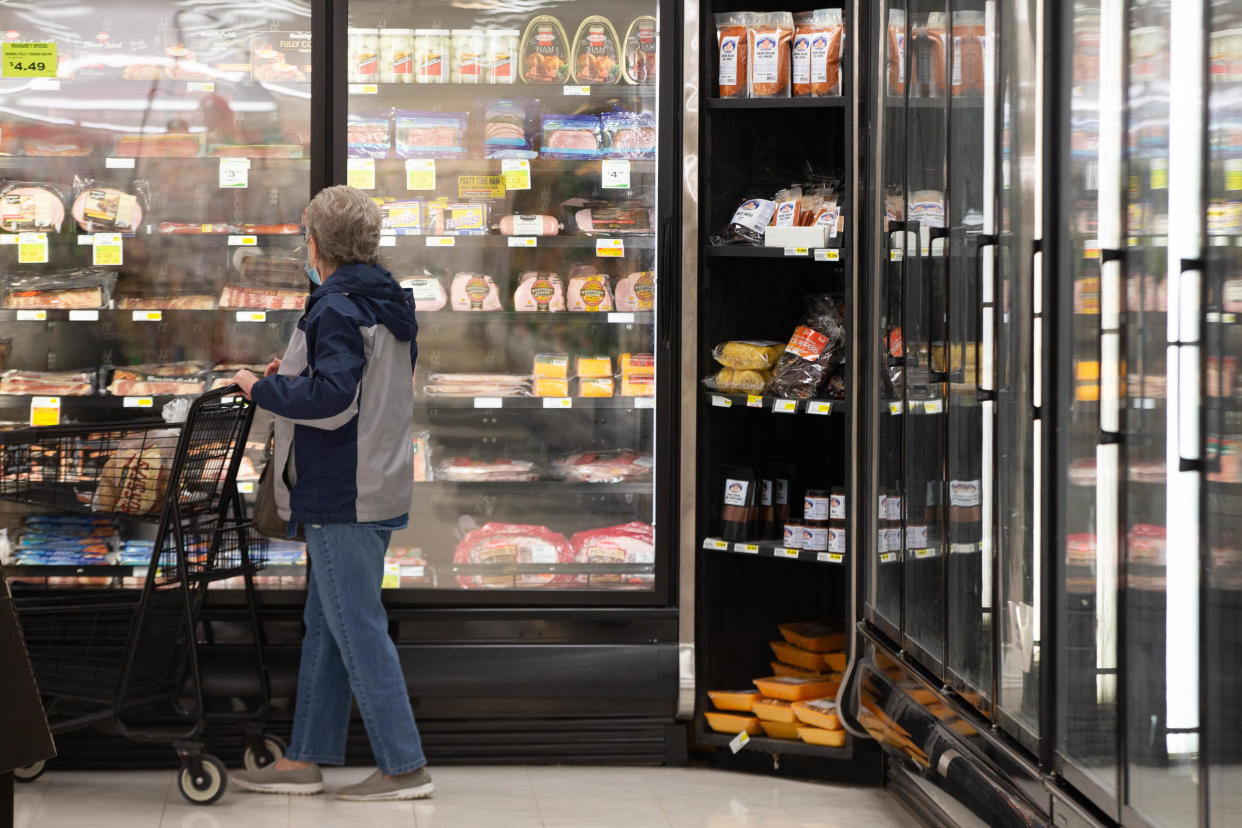'Whining about unfunded mandates' — Kansas GOP's effort to stymie local tax control fails

- Oops!Something went wrong.Please try again later.
The Kansas Senate on Tuesday rejected a plan from Republican leadership designed to prevent local governments from increasing property taxes to backfill lost sales tax revenue from a separate GOP bill.
The Senate last month passed a plan to exempt food from both state and local sales taxes, which would have cut an estimated $180 million a year from local government revenue. Officials warned that the only option for local governments wishing to maintain the same level of services would be to raise property taxes.
In an effort to prevent property tax increases, Senate President Ty Masterson, R-Andover, followed up with another bill to create a fund to use state money to compensate local governments for their lost revenue. The bill provided a one-time allocation of $220 million.
That bill, Senate Bill 309, was voted down 17-23 on Tuesday.
"Whether the bill passed or failed, it is a win-win from my perspective," Masterson said in a statement. "If it passed, it would ease the path to truly eliminate sales taxes on food for our constituents while protecting local governments from a loss in revenue. Since it failed, we never have to listen to those same local governments whining about unfunded mandates ever again — as now their credibility has been destroyed. Either way, the taxpayers win."
With the failure of SB 309, local governments would have no new state funding to subsidize operations affected by lost sales tax revenue if the food sales tax exemption in Senate Bill 248 passes. Topeka, Shawnee County and Washburn University could all lose millions of dollars.
More:Kansas Senate food sales tax cut would cost cities and counties. Here's what might happen.
Washburn president warned of increased tuition if bill passed
Local government officials were opposed to SB 248 and did not back SB 309.
"There is no need for the Legislature to make cities whole if you do not harm us in the first place," testified Nathan Eberline, executive director of the League of Kansas Municipalities. "We remain wary of trading a guaranteed source of revenue for a year-by-year appropriation by the state when the latter has been so hard to secure."
Washburn University President JuliAnn Mazachek testified that the SB 309 plan would not have permitted Washburn to access funds, leaving the university with little choice but to raise tuition to make up the $3.5 million to $5 million in lost revenue.
Shawnee County Counselor Jim Crowl said that the county opposed SB 309 because of the concern that the state could choose not to put money in the fund in future years.
While SB 248 remains available for tax policy negotiations next week, it faces unlikely prospects for becoming law.
The House has declined to advance the plan. Rep. Adam Smith, R-Weskan and the chair of the House Taxation Committee, told his colleagues it would go in "file 13," a euphemism for trash can. Later, the committee voted against working it. Gov. Laura Kelly also spoke against the bill.
Kansas Senate president had wanted 'healthy' food focus
Masterson did not originally intend for SB 248 to exempt all food purchases. Instead, he had planned for it to only apply to a narrowly defined set of "healthy" food with a "true zero" instead of the current elimination of only the state portion of the tax. Part of the motivation, he said at the time, was to help pay for a lower flat income tax as the bill would roll back the already scheduled cut in the state's food sales tax.
The Senate's plan for a 4.75% flat tax would cost about $1.3 billion over three years.
The House's 5.25% flat tax plan, which was debated Tuesday, would cost about $587 million over three years.
More:Middle class couples in Kansas will save little in flat tax plan. Here's who will benefit.
"I think a single rate is a simple way to approach it; it's a fair way to approach it," Smith said.
Rep. Stephanie Sawyer Clayton, D-Overland Park, attempted to amend the House's tax package to eliminate the flat tax provision.
"Right now, this bill is like a really nice guy," she said. "It's really nice, but it's not our dream date."
Her attempt failed.
That flat tax plan is part of a broader House tax package, which is expected to pass Wednesday.
Tax policy is expected to be negotiated next week in conference committee by three representatives and three senators before final packages are sent to both chambers. Smith said they have a budget for total tax cuts of about $500 million a year.
This article originally appeared on Topeka Capital-Journal: Kansas GOP food tax plan could cause local property tax increases

